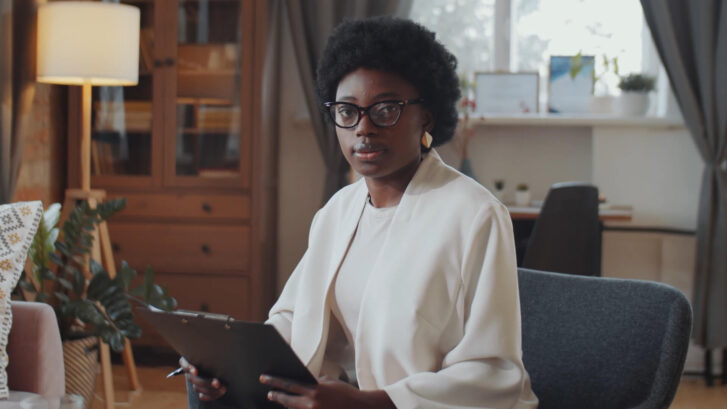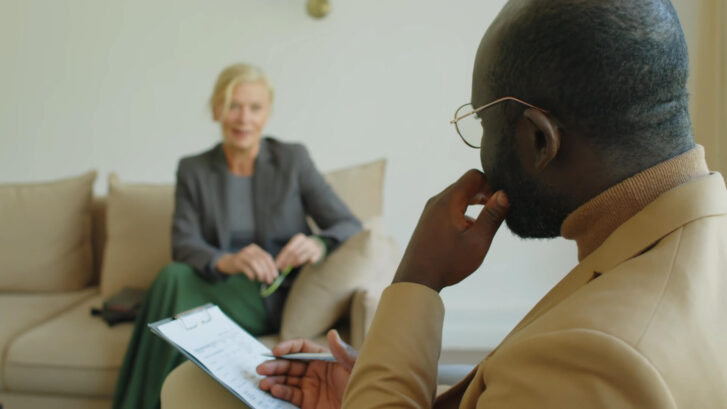Master’s programs in counseling typically span two years with full-time study, covering four academic semesters. Part-time students may need three or more years to graduate.
The duration varies based on factors such as course load per semester, availability of summer sessions, and integration of required clinical internships.
Attending summer term might reduce the completion time to 18 months.
Most programs require at least 700 hours of supervised clinical experience, potentially extending the time needed to fulfill all program requirements.
For those considering online learning, there are some universities that offer programs designed for professionals. Click Here for details
Key Takeaways
- Master’s in Counseling: 2 years full-time or 3+ part-time, with required clinical hours.
- LMHC requirements: Master’s degree, state-specific education and experience, licensing exams.
- Work settings: Healthcare, schools, private practice, with paths to administration.
- Work environment varies from team-based clinical roles to independent practice and academia.
Steps to Becoming a Licensed Mental Health Counselor (LMHC)
To become a licensed mental health counselor, individuals must first obtain a master’s degree following a bachelor’s degree in fields such as Psychology or Human Services. These undergraduate programs lay the foundation for advanced studies in counseling.
Education and Accreditation Requirements
Prospective LMHCs should be aware of the specific accreditation and educational prerequisites in their desired state of practice, as regulations vary by location.
For instance, Connecticut mandates that graduate programs be accredited by The Council for Accreditation of Counseling and Related Educational Programs (CACREP).
Essential coursework includes Human Growth and Development, Research and Evaluation, and Appraisals for Individuals and Groups.
Post-Graduate Supervised Experience
A critical component of becoming an LMHC is completing 3,000 hours of supervised experience post-graduation in a professional counseling setting.
This experience must span at least a year, with a minimum of one hundred hours directly supervised by a certified mental health professional such as a psychiatrist, psychologist, nurse, social worker, or counselor.
Licensing Exams
Candidates are also required to pass licensing examinations offered by the National Board for Certified Counselors to demonstrate their proficiency and readiness to provide mental health counseling.
State Licensure
After meeting all educational, experiential, and examination requirements and submitting the necessary documentation to the state board, individuals can obtain licensure to practice counseling in their chosen state.
The duration of a Master’s in Counseling program is significantly influenced by its format, the student’s weekly time commitment, and the program’s requirements. Here’s a streamlined overview to better understand the time investment.
Time To Complete Masters Degree
Full-Time Enrollment:
- Courses Per Semester: 3-5
- Number of Semesters: 4
- Time to Completion: 18-24 months
Part-Time Enrollment:
- Courses Per Semester: 1-3
- Number of Semesters: 5 or more
- Time to Completion: 30+ months
Clinical Internship Hours
Clinical internships, often comprising nine credits within a 60-credit program, are usually undertaken in the second year.
Some programs offer flexibility, allowing students to complete these hours over the summer, potentially shortening the overall time to degree completion.
Program Structure
Traditional, campus-based programs typically require 12-20 courses over four semesters for full-time students. Part-time students, taking fewer courses per semester, will naturally extend their time to graduation.
Online Programs and Accelerated Terms
Online programs may deviate from the traditional semester system, offering 8-week terms instead. This structure can enable:
- Full-Time Students: To graduate within 18-24 months.
- Part-Time Students: To require two or more years, depending on the course load.
Programs often set a maximum duration for completion, usually five to six years, to ensure timely graduation.
Employment Opportunities for Clinical Mental Health
1. Counseling Graduates
Graduates with a master’s in clinical mental health counseling have diverse career paths available. These programs aim to equip students for careers within the field, typically in agencies or through establishing private practices.
Employment can be found in various settings, including healthcare agencies, hospitals, educational institutions, long-term care facilities, and clinics, spanning the private, public, and nonprofit sectors. Advanced positions such as facility administrators or directors of nonprofit organizations are also viable paths.
2. Work Environment for Mental Health Counselors
Mental health counselors provide a range of services, including individual and group therapy, and substance abuse counseling, often within healthcare facilities or clinics as part of a multidisciplinary team.
Those with a master’s degree may advance to supervisory, lead counselor, or administrative roles. In private practice, counselors typically work independently and may also manage their business.
Additionally, opportunities in academic settings allow for involvement in research and education, further diversifying the work environments and roles within the field of mental health counseling.
FAQ
Are there CACREP-accredited online counseling programs?
Yes, there are online counseling programs accredited by CACREP, offering similar standards of education as traditional, on-campus programs.
Are there online Master’s in Counseling degree programs that do not require the GRE or that will waive the GRE requirement?
Yes, some online Master’s in Counseling programs do not require the GRE or offer waivers based on certain criteria, such as work experience or GPA.
How to become a Clinical Mental Health Counselor?
To become a Clinical Mental Health Counselor, earn a Master’s in Counseling, complete supervised clinical hours, pass licensing exams, and meet state licensure requirements.
How to become a College Counselor?
Becoming a College Counselor typically requires a Master’s degree in Counseling or a related field, along with relevant experience and potentially state-specific certification.
How to become a Marriage and Family Therapist?
Earn a Master’s degree in Marriage and Family Therapy, complete post-graduate supervised hours, and pass the state licensing exams to become a Marriage and Family Therapist.
How to become a Rehabilitation Counselor?
Obtain a Master’s degree in Rehabilitation Counseling, complete required clinical experience, and achieve certification or licensure as required by your state.
How to become a School Counselor?
To become a School Counselor, earn a Master’s degree in School Counseling, complete an internship or practicum in a school setting, and obtain state certification or licensure.
How to become a Substance Abuse Counselor?
Becoming a Substance Abuse Counselor involves earning a degree in Counseling or a related field, specializing in substance abuse, completing supervised hours, and passing any required certification or licensure exams.
Final Words
A Master’s in Mental Health Counseling prepares individuals for careers in healthcare and private practice, requiring study, clinical training, and state-specific licensure.
Options include traditional and online programs, accommodating both full-time and part-time students. The field offers growth, specialization, and advancement opportunities.



















